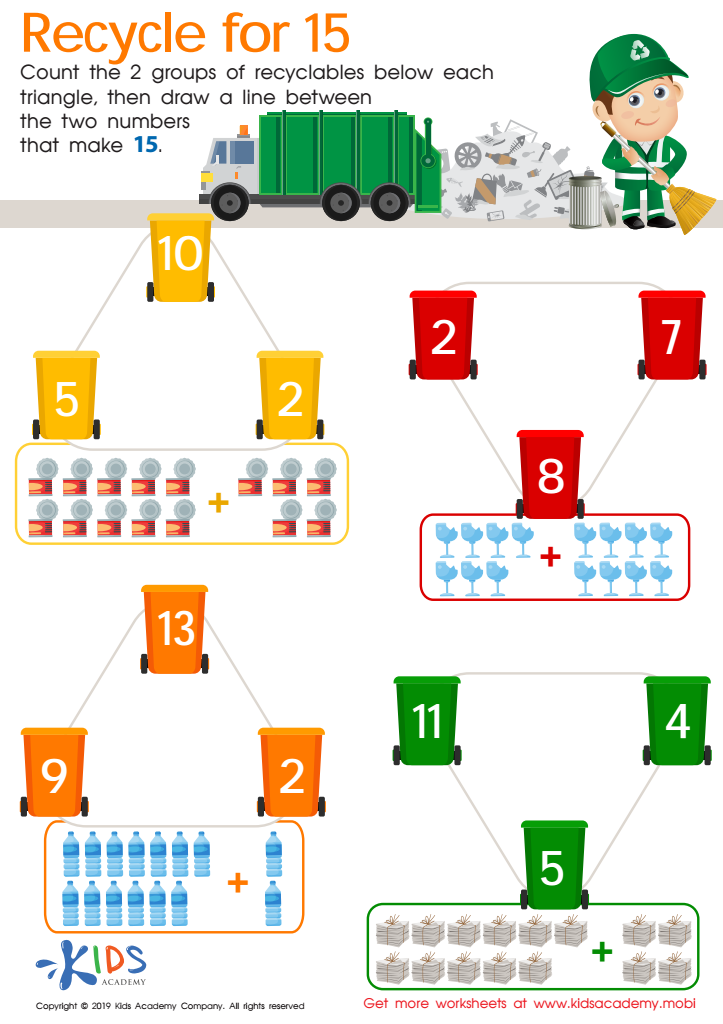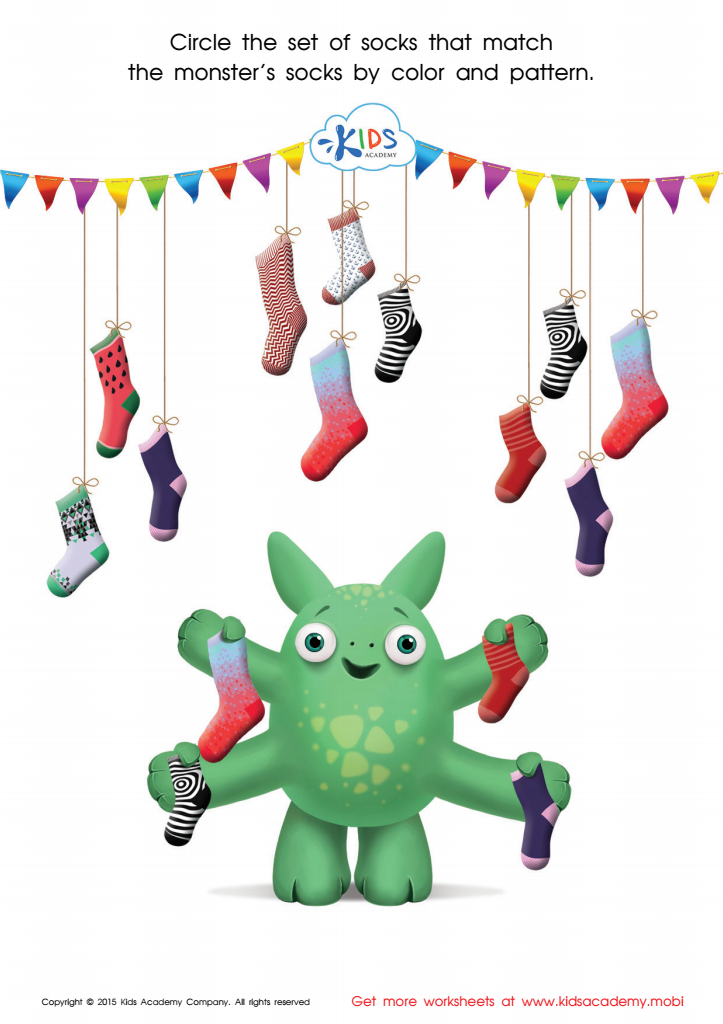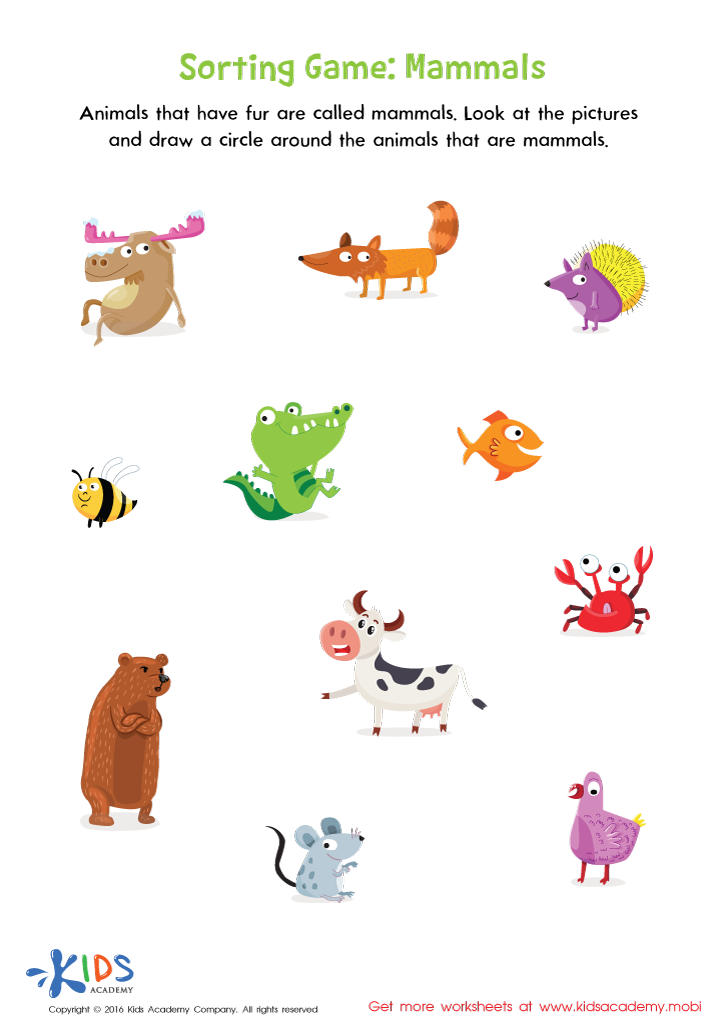Sorting skills Extra Challenge Worksheets for Ages 3-5
3 filtered results
-
From - To
Enhance your child's sorting skills with our Extra Challenge Worksheets designed specifically for ages 3-5! These engaging and fun printable worksheets provide a unique opportunity for young learners to explore sorting concepts through colorful visuals and interactive activities. Perfect for at-home learning or classroom use, our worksheets encourage critical thinking and fine motor skills while making learning exciting. Your little one will love matching, categorizing, and identifying various objects by shape, size, and color. Foster cognitive development and creativity as your child tackles these extra challenges. Download now and watch them thrive in their sorting abilities!


Recycle for 15 Worksheet


Sort the Monster's Socks Worksheet


Mammals Sorting Worksheet
Sorting skills are foundational for early cognitive development and must be nurtured in children ages 3-5. For parents and teachers, fostering these skills offers numerous benefits that extend beyond mere organization. First, sorting encourages critical thinking as children learn to categorize objects based on attributes like size, shape, color, or function, important for problem-solving.
Moreover, sorting is a bridge to more advanced mathematical concepts; it lays the groundwork for comparisons, pattern recognition, and eventual skills involving sorting, counting, and even basic arithmetic. Engaging in sorting activities enhances verbal skills as children learn to articulate their reasoning, share observations, and engage in discussions about their choices.
Additionally, practicing sorting in fun, hands-on ways allows children to develop fine motor skills through manipulation of various objects, which is essential for later tasks like writing or using tools. It also supports their social-emotional development by promoting cooperation during group activities and fostering patience and perseverance.
Overall, sorting skills serve as a keystone in a child's early learning journey. By actively participating in and emphasizing these activities, parents and teachers can bolster cognitive, motor, and social skills that will underpin lifelong learning.
 Assign to My Students
Assign to My Students



















